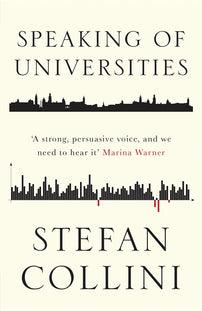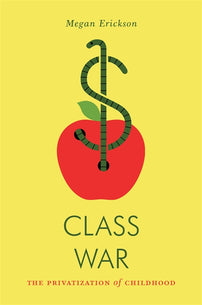The Augar Review and the Marketisation of Higher Education
Response from the left to the government's recent Augar Review of higher education has so far focused on whether it is deliverable, not whether it is desirable. In this article, Oliver Eagleton argues that the left must reject the Report's proposals in full, and replace them with a radical, de-marketised alternative.

Rattled by its dismal showing amongst young voters in the 2017 election, the Tory government commissioned a major review of tertiary education policy which was finally published last week. Philip Augar, an investment banker who has worked for NatWest, Schroders and KPMG, was chosen to lead the independent report. His proposals could reshape the British education system for years to come, yet their ideological foundation has not been subjected to proper scrutiny. Instead, most commentators have tried to sift the Review’s reasonable suggestions from its retrogressive ones, and in the process they have neglected the central purpose of the document: to entrench the marketisation of higher education and restrict the autonomy of its institutions.
There are dozens of recommendations in the 216-page Augar Review. These address everything from student finance, apprenticeships, university funding, further education and technical training, among other issues. But those that have attracted the most attention include the revival of means-tested maintenance grants (abolished by the Tories in 2015) and the reduction of student fees from £9,250 to £7,500. Alongside these measures, Augar writes that the state should invest more in further education and less in higher education; use public funding to prioritise ‘valuable’ subjects aligned with the government’s industrial strategy; withdraw funding from foundation years; and establish a ‘lifetime learning loan’ which would allow adults of any age to return to education. The student loan contract must also be amended, according to Augar, so that graduate debt is forgiven after 40 years rather than the current 30, with repayments capped at 1.2 times the initial loan value. And instead of using unpleasant terms like ‘loans’ and ‘debt’, his report recasts the £7,500 annual tuition fee as a ‘contribution’ (with all the gentleness and generosity that word conveys).
Of course, any minor fee reduction or additional state support will make life easier for students – and, on this level, it is easy to see why some left-liberals have welcomed the Review. The Guardian, for instance, described Augar’s further education policy as ‘sound’, praised the reintroduction of maintenance grants, and claimed that ‘the cutting off of funding for foundation years…is worth considering’. Meanwhile, reactions from political parties and university associations have so far focused on whether Augar’s vision is deliverable, not whether it is desirable. Labour’s shadow education secretary Angela Rayner responed to the Review with scepticism, stating that the Review ‘means nothing without Government action’ and demanded to know whether its recommendations ‘will be implemented by [Theresa May’s] successor’. Vanessa Wilson, the chief executive of University Alliance, echoed Rayner by questioning whether the government has ‘the money, legislative space or political impetus’ to realise the report’s ‘serious, detailed’ findings. For Wilson, such uncertainty indicates that ‘Theresa May’s review risks being dead on arrival’. What she fails to say is that this would be the best possible outcome.
Augar’s proposals are disastrous for students, teachers and taxpayers. First off, his demand that money should be drained from universities and poured into vocational training will have a devastating effect on already overstretched departments. The result, as Jonathan Wolff predicts, will be the ‘freezing of posts; redundancies; smaller annual wage rises; increased casualisation of teaching; and cutting student support services’. This is certain to compromise the quality of higher education; yet, under Augar’s plan, most students will be expected to pay more for it. The new 40-year repayment timetable means that those earning median salaries will accumulate masses of interest on their student debt, whereas rich graduates will be able to repay their loans before such interest has built up: a policy deemed ‘regressive’ by none other than former Conservative education secretary Justine Greening. According to Augar’s statistics, this reform will reduce the price of a third-level degree by £18,000 for the highest earners, while graduates on lower salaries will end up paying £12,000 more than they do now. These figures are optimistic, however, since the Augar Review does nothing to prevent the government from selling student debt to private companies, who will have the right to inflate interest rates and alter repayment schedules as they wish.
So the immediate effect of the Review is that most university students will learn less and pay more. They will also start repayments sooner (once they are earning £23,000 per year, as opposed to the previous threshold of £26,000), and only have the debt cleared once they approach retirement age. The idea of punishing nurses by increasing the cost of their tuition – while giving a huge financial break to City bankers – may strike some readers as irrational. Yet there is nothing wrong here with Augar’s reasoning. Augar’s main aim in this is to disincentivise what he calls ‘low value’ education – namely, courses that lack a clear market function: those which do nothing to achieve ‘industrial strategy priorities’ or meet the demands of business (207).
At the beginning of the document, Augar outlines what he believes to be the ‘six purposes’ of education. Five of them are to do with making money. Education, he tells us, allows people to ‘realise their full potential economically’; it provides a ‘suitable workforce’; produces ‘commercial ideas’ through ‘strong links with business’; makes a ‘direct contribution…to the economy’; and stimulates economic activity in areas proximate to educational institutions. As an afterthought, Augar notes that education can also ‘enrich society through knowledge, ideas, culture and creativity’, though he does not let this extra-monetary purpose affect the Review’s final recommendations (15-17).
Given Augar’s financialised notion of ‘value’, his bid to deter students from courses with lower salary prospects makes perfect sense, as does his seemingly progressive tuition fee cut. The decision to reduce ‘student contributions’ is an attempt to combat the popularity of ‘low value’ degrees, such as arts, humanities and social sciences. If the upfront cost of tuition is lower for students, this gives the state a direct role in guaranteeing the financial solvency of universities (since it will have to provide a larger proportion of the capital). Augar claims that the government should use this role to ensure that institutions focus on ‘high value’ subjects that line up with his profit-driven ‘purposes’. The Department for Education is encouraged to withdraw funding from providers that refuse to adapt their curricula to the needs of the market. If a university cannot adapt – or if it resists this instrumentalization of its educational resources – then it should be allowed to go bankrupt. To prop up an institution which serves no market purpose would, in Augar’s estimation, ‘risk a moral hazard’ (98).
This is the insidious motive behind the report’s supposed concessions to students. Following the failure of previous Tory education reforms to stimulate competition or stamp out ‘useless’ subjects, the Augar Review enhances the power of the state to achieve these ends. Its ‘lifetime learning loan’, hailed as an advance for adult education, is in fact a response to greater ‘labour market flexibility…shorter job cycles and longer working lives’. In other words, it is a state-subsidised retraining programme, tailored to a precarious job market and designed to provide bosses with ‘upskilled’ human capital (8-10). The same could be said of maintenance grants, which Augar describes as a necessary measure to ‘drive up both the supply of and demand for [high value] courses’ (9). If the twenty-first-century university is imagined as a place where people learn how to make money for themselves and their employers, then it is clear-sighted to expand student intake through maintenance grants. Any loss of public funds that this entails is offset by higher employment rates, thriving businesses and greater economic growth.
In this sense, the Augar Review captures one of the most crucial and contradictory tenets of neoliberal governance: in order to diminish the public sector and let the market reign supreme, the state is regularly obliged to perform brutal and costly interventions on behalf of the latter. For those of us who value academic inquiry – and feel that its value depends upon its independence from both state and market forces – there is no need to weigh the pros and cons of Augar’s conclusions. We must reject them in full, and replace them with a radical, de-marketised alternative.
Oliver Eagleton is a freelance journalist. His work has appeared in the TLS, Jacobin and Novara Media.
[book-strip index="1" style="display"]




